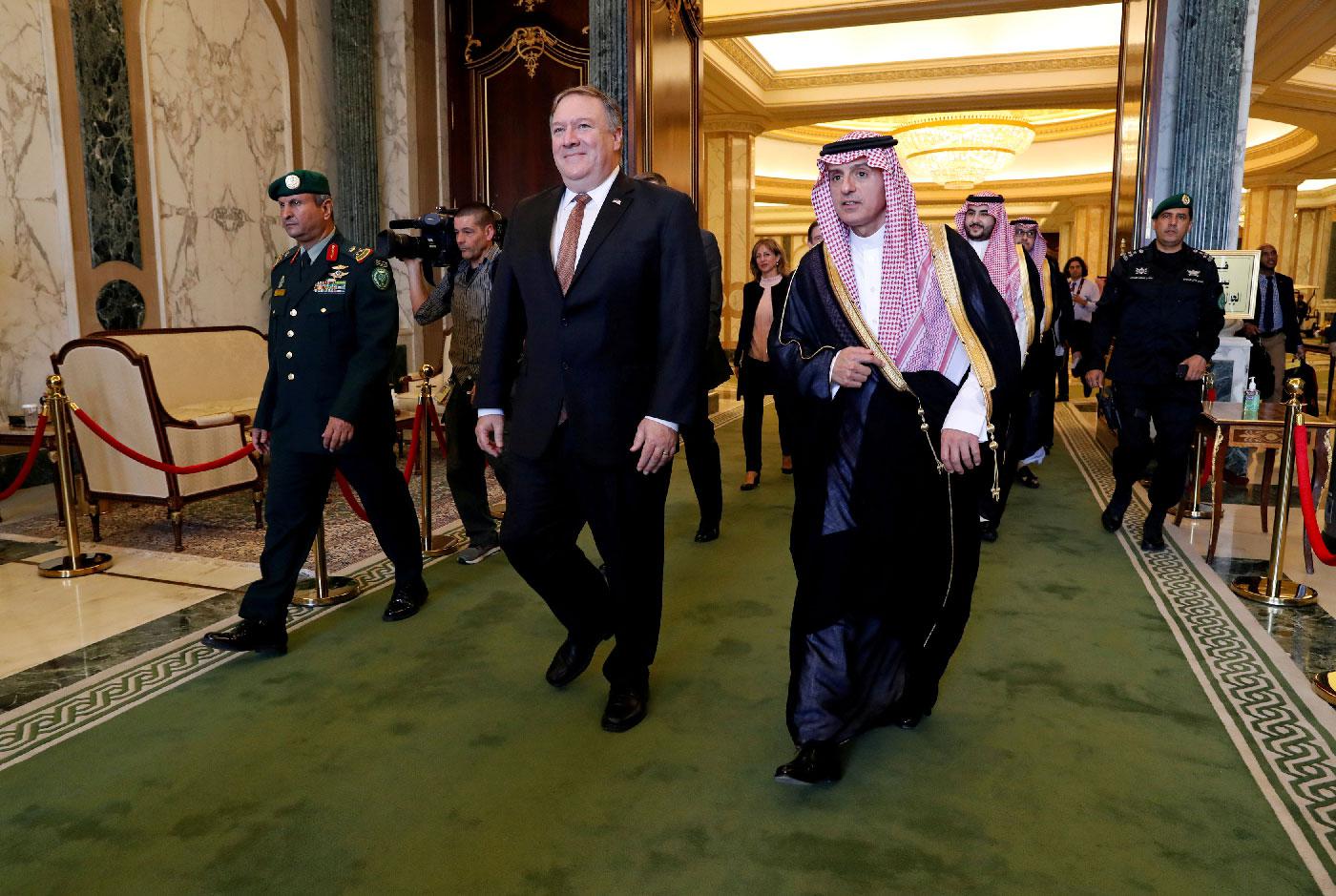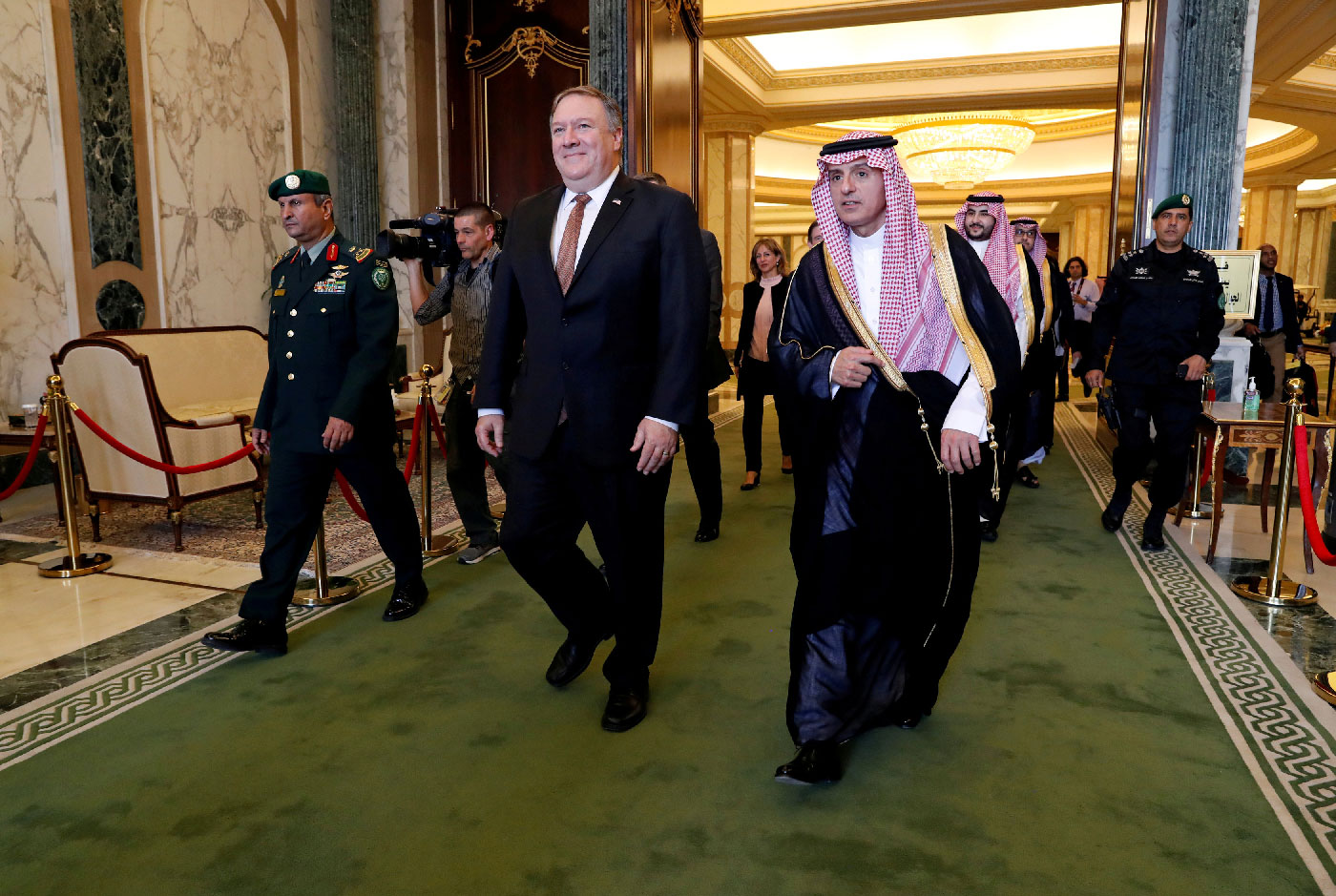Saudi, Turkey, US clash over journalist's killing
RIYADH - Saudi Arabia has sought to draw a line under one of its biggest crises triggered by critic Jamal Khashoggi's murder, but an ever greater threat of international scrutiny and pressure hangs over the kingdom.
Riyadh on Thursday exonerated powerful Crown Prince Mohammed bin Salman of involvement in the murder as it called for the death penalty against five men, and as the United States, a key ally, slapped sanctions on 17 suspects.
The Saudi prosecutor said the operation was ordered by the deputy chief of intelligence Ahmed al-Assiri, who was advised by the royal court's Saud al-Qahtani. Both were part of Prince Mohammed's inner circle and have been sacked.
Assiri -- lionised in Saudi military ranks as a war hero -- was not named among the 17 Saudis sanctioned by the US, but he appears sidelined.
In the aftermath of the crisis, King Salman ordered a restructuring of the intelligence apparatus to be led by Prince Mohammed, who has effectively neutered his political rivals and tightened his grip on military and security agencies.
But reports in US media on Saturday said the CIA believes bin Salman ordered the killing of Khashoggi in Istanbul, complicating President Donald Trump's efforts to preserve ties with a key US ally.
Various speculations
Sources familiar with the matter said the CIA had briefed other parts of the US government, including Congress, on its assessment, which contradicts the Saudi government's assertions.
The CIA's position, first reported by the Washington Post, is the most definitive US assessment to date tying Saudi Arabia's de facto ruler directly to the killing.
The Saudi Embassy in Washington rejected the CIA assessment.
"The claims in this purported assessment is false," a spokeswoman for the embassy said in a statement. "We have and continue to hear various theories without seeing the primary basis for these speculations."
US Vice President Mike Pence, on a visit to Papua New Guinea, told reporters traveling with him that he could not comment on classified information.
"The murder of Jamal Khashoggi was an atrocity. It was also an affront to a free and independent press and the United States is determined to hold all of those accountable who are responsible for that murder," he said, but added that Washington wanted to preserve its relationship with Saudi Arabia.
The US State Department declined to comment.
Trump and top officials of his administration have said Saudi Arabia must be held to account for any involvement in Khashoggi's death, but they have also stressed the importance of the alliance.
US officials have said Saudi Arabia, a major oil supplier, plays an important part in countering Iran's malign role in the region, and Trump has repeatedly said he does not want to imperil US arms sales to the kingdom.
Many lawmakers think the Trump administration should take a tougher stance, and the CIA's stance is likely to embolden that view.
"It currently seems like the US pressure will not go away any time soon," said Steffen Hertog, an associate professor at the London School of Economics.
"That said, other than sanctions on weapons deals -- which Trump will resist -- it is not quite clear what Congress can do. Direct sanctions against Prince Mohammed... seem unlikely, as do financial sanctions."
Khashoggi, a critic of the Saudi government and a columnist for the Washington Post, was killed at the Saudi consulate in Istanbul on Oct. 2 when he went there to pick up documents he needed for his planned marriage to a Turkish woman.
Khashoggi had resisted pressure from Riyadh for him to return home. Saudi officials have said a team of 15 Saudi nationals were sent to confront Khashoggi at the consulate and that he was accidentally killed in a chokehold by men who were trying to force him to return to the kingdom.
Death penalty
Trump and Turkish President Recep Tayyip Erdogan agreed on Friday that any cover-up "should not be allowed", a Turkish presidential source said after a phone call between the two leaders.
Saudi Arabia has rejected calls for an international investigation, and Saudi officials have accused Turkey of failing to respond to requests by the Kingdom for information on the case.
Turkish officials have said the killing was intentional and have been pressuring Saudi Arabia to extradite those responsible to stand trial. An adviser to Erdogan on Thursday accused Saudi Arabia of trying to cover up the murder.
Saudi Arabia's public prosecutor said on Thursday that he was seeking the death penalty for five suspects charged in the killing. The prosecutor, Shalaan al-Shalaan, told reporters the crown prince knew nothing of the operation, in which Khashoggi's body was dismembered and removed from the consulate.
Ankara has said the kingdom's latest explanation was "insufficient".
Seeking to keep up the pressure, Turkish media on Friday reported that Ankara had more evidence contradicting the Saudi version of Khashoggi's murder, including a second audio recording.
"The Saudis think they can run the clock on the affair and it will soon leave the spotlight," said Bessma Momani, a professor at Canada's University of Waterloo..
"The audio tapes are the last leverage that the Turks have and in the past few days they've made it clear they are sharing it widely."
At home, senior Saudi royals seem to be projecting a united front to defend the kingdom.
King Salman and his son, Prince Mohammed, have launched an unprecedented domestic tour to leverage their links with different tribes and religious leaders and shore up support for the leadership.
At Friday sermons in cities including Jeddah, prayer leaders in recent weeks have defended the rulers and pushed for unwavering "loyalty", according to multiple residents.
But in the US, officials have been skeptical that Prince Mohammed would not have known about plans to kill Khashoggi, given his control over Saudi Arabia.
The Washington Post, citing people familiar with the matter, said the CIA's assessment was based in part on a phone call the crown prince's brother, Prince Khaled bin Salman, the Saudi ambassador to the United States, had with Khashoggi.
Prince Khaled told Khashoggi he should go to the Saudi consulate in Istanbul to retrieve the documents and gave him assurances that it would be safe to do so, the Post said.
The newspaper, citing people familiar with the call, said it was not clear if the prince knew Khashoggi would be killed but that he made the call at his brother's direction.
But the prince strongly denied these claims in a Twitter post on Friday, saying that the last contact he had with Khashoggi was via text on Oct. 26, 2017, nearly a year before the journalist's death.
"I never talked to him by phone and certainly never suggested he go to Turkey for any reason. I ask the US government to release any information regarding this claim," Prince Khaled said.



